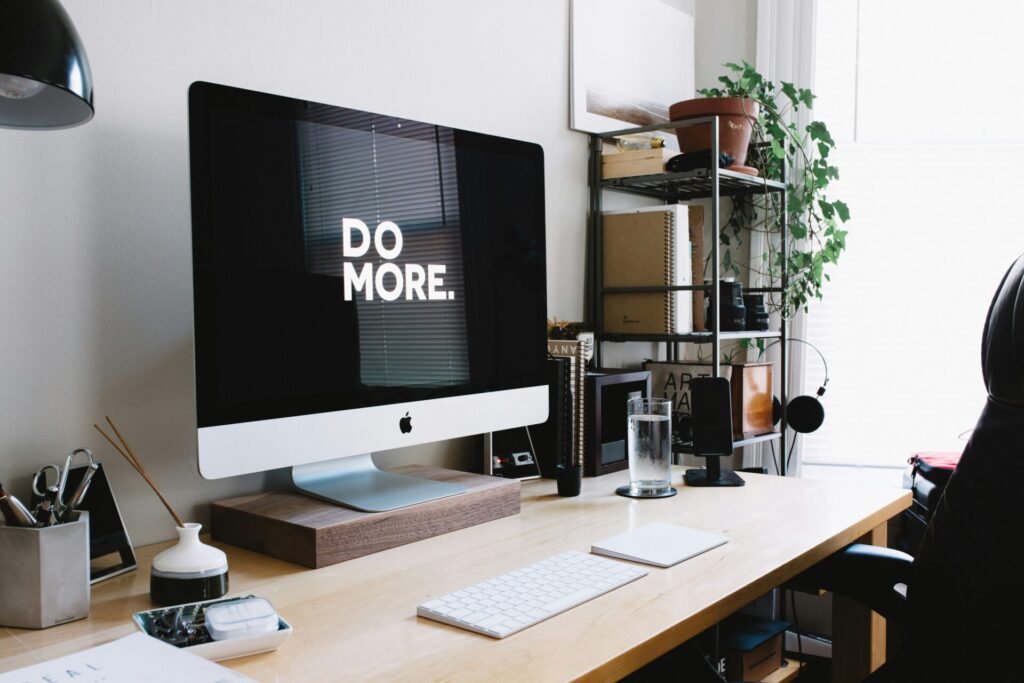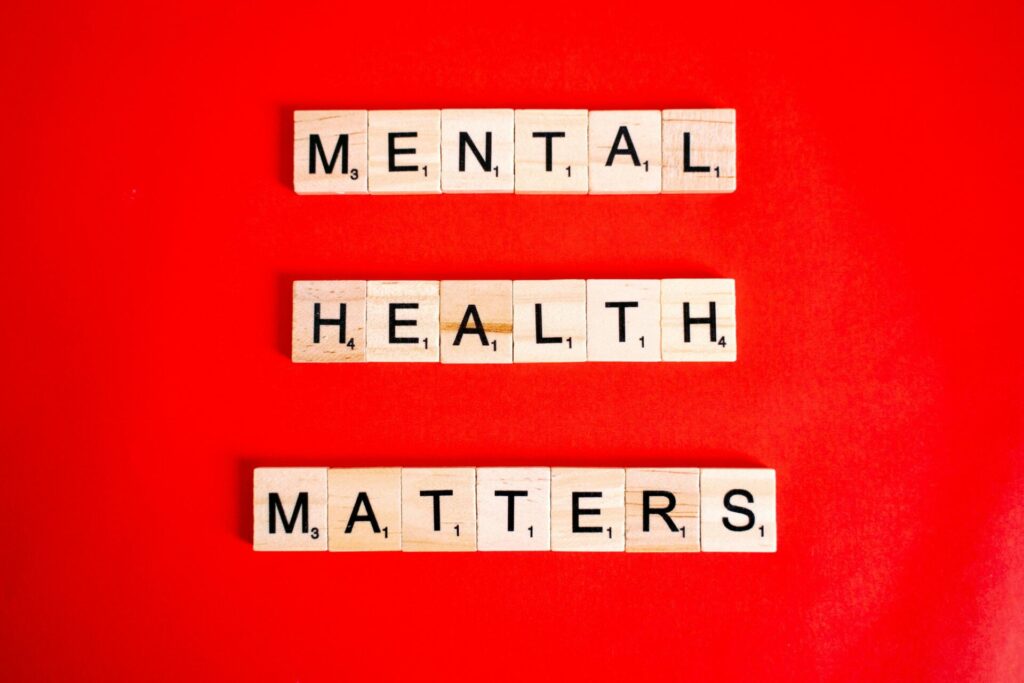Do you feel like you have a balanced approach to productivity? Does it feel like you are always trying to juggle more balls? Or do you feel guilty that you could be doing more when you are spending time away from work?
When I look online about what healthy productivity can look like I notice two different camps of thought. The two ways of thinking are very extreme. One is the hustle culture. Proponents of this way of thinking want to help you optimize your time so you can get the most stuff done.

The other side is the anti-productivity camp. This side encourages slowing down, and taking care of yourself.
I started Private Practice skills at the peak of hustle culture. There was a lot of attention around trying to optimize each hour and minute of your day to get a lot of work done.
I think there was a natural backlash against that. And then the pendulum swung the opposite way.
It became quickly apparent how harmful hustle culture can be. So now there is a lot of anti-productivity content being created. Which then raises the question: “If you aren’t focused on being productive, are you getting stuff done?”
Today I want to talk about hustle culture, the anti-productivity movement, and finally, what a balanced approach to productivity can look like.
Prefer to watch instead? Check out the video version of this article below:
Hustle culture
In my mind, hustle culture emphasizes taking a goal that is important to you and focusing all your energy on that one thing.
I’d say I took this hustle culture approach when I first started Private Practice Skills. I had my regular full-time job seeing therapy clients. But then during my lunch breaks, and after work until 9 or midnight I would be working on making videos, editing and other projects to get my business off the ground. With that said, I was still exercising and attending to my relationships.
Looking back at that time, I still feel really proud of myself! I feel like what I did at that time and how I spent my time was overall healthy and aligned with my goals.
Anti-productivity movement
On the flip side, let’s talk a little bit about anti-productivity/anti-hustle culture.
In my mind, this mindset focuses more on self-care, going at a pace that feels reasonable, and productivity not being the defining characteristic of what makes life worth living.

Now, I’ve noticed for myself in the last few years that I’ve embraced this movement away from hustle culture in my own approach. Both in my therapy practice and my online business. Some of this comes from a very privileged position to still be able to pay my bills and then some by working part-time.
And with that said, I know so many people in the hustle culture world who definitely make enough money to pay their bills and then some, but then keep going in that hustle mindset. They keep trying to multiply whatever it is that they’ve built. Arguably, they already have enough and they could slow down and be just fine.
Which mindset is healthier?
Now, I can say beyond a shadow of a doubt, that moving away from hustle culture was a healthy move for me personally.
But, this is the juncture in my thought process where it starts to feel confusing. Because, as I mentioned previously, as I reflect back on the time when I was hustling, I feel proud of myself. I feel like I was healthy overall.
And yet, I also know that it felt healthy to step away from hustle culture.
So, which one is it Marie?!
This led me to wonder. What are we measuring when we measure productivity? Many ask: Is it healthier to lean into hustle culture or the anti-productivity movement? But, I wonder if that is the wrong question to be asking.
For most people, on either side of this issue, they’re defining productivity in the same way. They see productivity as confined by getting work-related tasks done. Work tasks meaning things that pay your bills or you’re hoping will pay your bills someday. Or adult responsibility tasks, i.e. running errands, household chores, paying bills, etc.
Defining productivity
But, now I’ve started to question if this is how I want to define productivity. Ultimately, what I think productivity looks like is based on what is important to you right now and what your goals are.
So, maybe that time that you spent bingeing Netflix or lying on the beach reading a book was super productive because it aligns with a goal that you were trying to prioritize.
Maybe there are other seasons of life where goals look like being productive based on societal standards of what productivity looks like. In my eyes, this is a balanced approach to productivity.
Personally, I would like to advocate for shifting how we define productivity. Rather than it being a societally defined universal perspective of what’s valued, it should be individualized. And even within the individual it needs to be flexible in order to shift with the changing needs and values of our lives.
Productivity tied to self-worth
I also believe that as we’ve societally defined productivity we’ve glorified that kind of productivity. We’ve equated it with a sense of self-worth.
So not only have we defined productivity within this boundary of working towards career goals and on adult responsibilities, we’ve also equated someone’s self-worth with their capacity to move towards those specific types of goals.
It can start to become an internalized message. Using this narrow definition of what productivity can look like, we start to believe that in order to have value we need to be productive.
I would argue, if we put our sense of self-worth in our ability to be productive, we are setting ourselves up for some sort of mental health disaster. Individually and also as a society.
Some of these things might be avoided if we can acknowledge that our worth is consistent regardless of how much stuff we get done.

Something else that can go wrong when we define our worth using this narrow definition of what productivity looks like is we can start adding things to our plate for the sake of being productive.
We can very easily start to insert more tasks that may not help us towards our end goals at all. Just for the sake of feeling productive. We create lists in our mind of stuff we should be doing instead of resting or playing.
The balanced approach
To sum it up, I think that you can define productivity based on what matters most to you and what’s most important to you at this moment.
Sometimes it might align with your goals to lean in and hustle for a little bit. And there are going to be times when it aligns more with your goals to scale back and focus on other things that are more important to you. This is a balanced approach to productivity.
I hope our society can start to encourage this shift together so it doesn’t look like we are all in on the hustle mindset or all in on the anti-productivity movement. I think we have a lot of room to grow as far as the unhealthy expectations we put on people based on what we think productivity should look like.
Instead, we should work on helping folks embrace what it looks like to be productive in a healthy way.
My thoughts on productivity
As I mentioned earlier I have left hustle culture behind for now. Check out my video on why I made the switch from hustle culture to working part-time, and how I still manage to grow my business.
While I do work part-time I am very intentional about how I use my time to accomplish career related tasks. My article “Becoming A More Productive Therapist (While Working Less)” shares some reasons why I find working less allows me to be more productive with the time I do put towards work. This is my version of a balanced approach to productivity!
Until next time, from one therapist to another: I wish you well.
-Marie
Photo by Carl Heyerdahl on Unsplash
Image by Kaylee Garrett on Unsplash
Photo by Anna Tarazevich from Pexels
Leave A Reply